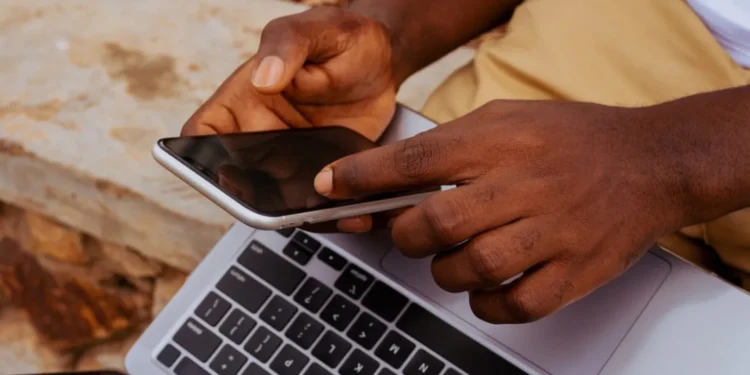Belgium (Brussels Morning Newspaper), In the bustling streets of Abidjan, Ivory Coast, a sense of digital isolation grips the air. Abraham Poly, a local cab driver, faces an unprecedented challenge. His vehicle’s screen, usually bustling with ride requests, now eerily displays a message: “System blocked. Please contact the supplier.” This isn’t just a glitch in the system. It’s a symptom of a larger crisis unfolding across West and Central Africa, where a major Internet outage has plunged regions into a state of digital paralysis. “It is difficult to receive bookings like that,” he told a reporter from the French-language channel TV5
The outage, which began last Thursday, has hit Ivory Coast hardest, with Netblocks reporting a staggering 97% drop in Internet connectivity. Neighboring countries, including Nigeria, Ghana, Liberia, and Benin, haven’t been spared either, with Internet reliability plummeting across the board. Even South Africa experienced disruptions, though they were brief thanks to quick detouring solutions.
At the heart of this digital blackout are four vital sea cables: ACE, SAT-3, MainOne, and WACS. These undersea lifelines, responsible for the digital pulse of West Africa, suffered damage under mysterious circumstances. Speculation abounds, with fingers pointing at ship anchors, fishing trawls, or even natural phenomena like submarine landslides as potential culprits.
The implications of this outage are profound and far-reaching. Yango, a popular ride-sharing app developed by Russian tech giant Yandex and used by cab drivers like Abraham Poly, reported a catastrophic 50% sales drop. The downtime is not just a technical issue but a livelihood one, affecting countless individuals and businesses reliant on the Internet for their daily operations.
This digital crisis underscores a vulnerability that extends beyond immediate economic impacts. It lays bare the fragility of a region’s connectivity, hinged on a few undersea cables and limited rerouting options. Digital banking, market information for farmers, and general access to news and social platforms have all been severely hampered, affecting the societal fabric and economic stability of the region.
The outage’s timing couldn’t be more ominous, echoing a similar disruption in global connectivity that recently affected key regions including Hong Kong, New Delhi, Johannesburg, and Nairobi. In that instance, vital signals through Red Sea cables were mysteriously cut off, sparking widespread speculation about sabotage, particularly by the Houthi rebels from Yemen. Though initial suspicions pointed towards a deliberate attack, subsequent investigations suggested an accidental cause: an anchor from the Houthi-sunk ship Rubymar.
These incidents highlight a critical vulnerability in the global digital infrastructure, particularly around Africa. The continent’s Internet connectivity is not just a matter of local concern but a critical artery in the global data exchange, carrying a significant portion of intercontinental data traffic. The disruption in the Red Sea, for instance, affected a quarter of all Internet traffic, underscoring the strategic importance of these undersea cables.
Repair efforts in both regions are fraught with challenges. In West Africa, specialized ships and underwater robots or divers are required for repairs, a process expected to take weeks, if not longer. The situation in the Red Sea is even more complex, compounded by geopolitical tensions, piracy, and the logistical nightmares of navigating a conflict zone.
This unfolding crisis sheds light on the interconnected nature of our digital world and the vulnerabilities that come with it. It raises questions about the resilience of our global digital infrastructure and the need for more robust, diverse, and secure connectivity options. As we navigate these troubled waters, the story of Abraham Poly and countless others serves as a stark reminder of the thin digital thread that binds our world together and the urgent need to strengthen it.
Opinions expressed in the op-ed section are solely those of the individual author and do not represent the official stance of our newspaper. We believe in providing a platform for a wide range of voices and perspectives, even those that may challenge or differ from our own. As always, we remain committed to providing our readers with high-quality, fair, and balanced journalism. Thank you for your continued support.Sincerely, The Brussels Morning Team




